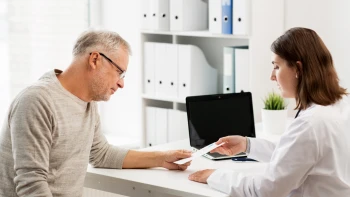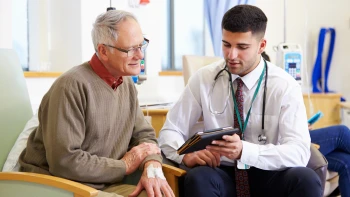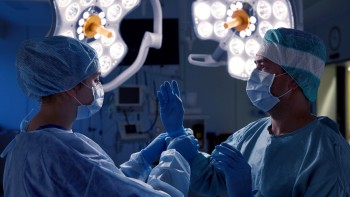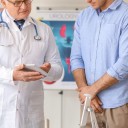Diet after prostate surgery
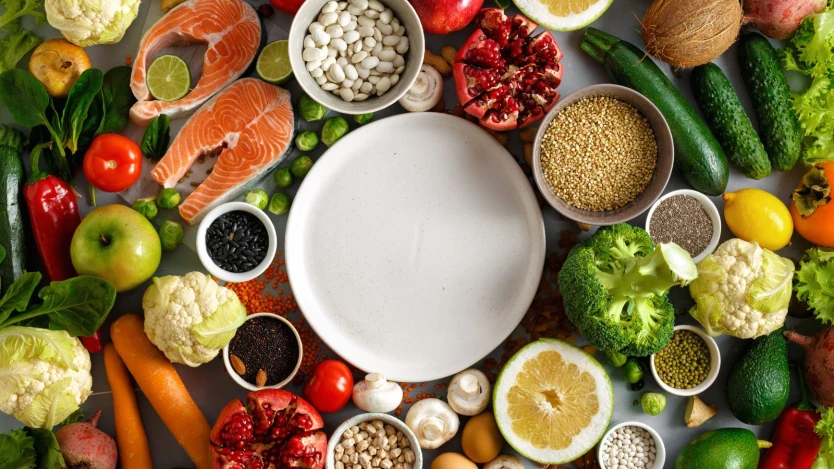
- Why is prostate surgery necessary?
- General recommendations after prostate surgery
- Recommended dietary guidelines before and after prostate surgery
- Foods to avoid
- Requesting a prostate surgery assessment consultation
Why is prostate surgery necessary?
- After prostate surgery, generally, you should not follow a special diet during recovery, but you should follow some guidelines that will help it to pass more quickly.
- To avoid constipation, which is a typical symptom after surgery, it is recommended to introduce whole grains into your diet and, above all, avoid carbohydrate foods.
- When it comes to cooking, and especially after prostate surgery, you should choose the cooking methods that best preserve the nutrients of the food and, in the case of vegetables, eat them raw if possible.
As you probably already know, prostate surgery can be performed using different methods and techniques. Among these, we can differentiate between conventional surgery or TURP, surgery with the Urolift system and also more recent techniques such as the GreenLight laser, the Holmium laser or the Thulium laser.

Free Assessment for Contracting Medical Services
Operarme’s Patient Service will contact you and solve all your questions on the medical service you need.
All the treatments have the same aim, to help you recover your quality of life and, of course, to improve your health, reducing the size of the prostate and eliminating the symptoms caused by its enlargement.
Bear in mind that after surgery you must continue to take care of yourself in order to achieve the best results. Below, we are going to give you some general advice and several dietary guidelines that will help you to achieve this.
General recommendations after prostate surgery
After prostate surgery, specialists recommend that you take all the necessary precautions to ensure that your recovery is optimal. In this section we will briefly inform you of several important indications to follow after the operation.
- Urinary catheter: If you have undergone TURP (transureteral resection of the prostate), you will need to wear a catheter for several days after surgery to drain urine and help your prostate to heal. Not to worry, after removal of the catheter you will be able to urinate normally again almost immediately.
- Walking: Specialists recommend walking after any of the surgical treatments, for at least 10 minutes every hour during the first week and increasing the time as the weeks go by, thus avoiding muscle loss and recovering the correct functioning of your body.
- Sexual activity: It is important to avoid sexual relations until you have finished your recovery after surgery. The time you have to wait will depend directly on how your state of health progresses. If you have any doubts, consult your specialist.
- Lifting and straining: To avoid complications and ensure proper healing of the prostate, you should avoid straining, driving and above all, avoid lifting objects weighing more than two kilos.
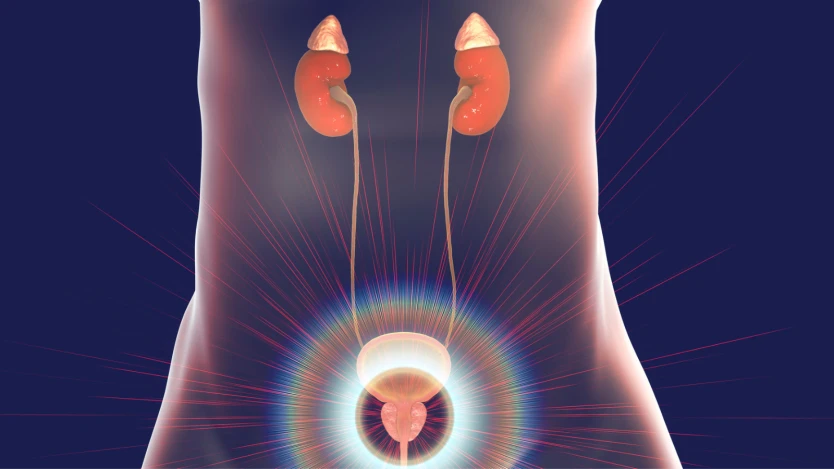
If you have further questions about the recovery process and the time involved in the postoperative period, you can find more information in these articles:
- Recovery time after prostate surgery
- Postoperative period for TURP surgery
- Recovery after prostate surgery. Thulium laser versus traditional techniques
- Recovery after prostate surgery with holmium laser
In the following section we detail another factor that will benefit your recovery and your long-term health in general, as these guidelines can be applied both before the operation and during the postoperative period.
Recommended dietary guidelines before and after prostate surgery
As mentioned above, eating a balanced and nutrient-rich diet will help you recover faster and lead a much healthier life. If you continue reading you will find the most recommended foods and others that you should avoid.
You should know that in general, after prostate surgery it is not necessary to follow any kind of exclusive diet, but it is advisable to consume some foods more than others, as well as drinking plenty of fluids, especially water, avoiding fizzy drinks, alcohol and coffee. This will help you to stay properly hydrated and promote the correct functioning of the organism.
Vegetables
Eating vegetables is very beneficial for your recovery, providing your body with nutrients such as vitamins, antioxidants and minerals, which strengthen the immune system and help the body defend itself against infections and other pathologies. Specialists recommend a diet rich in cruciferous vegetables such as:
- Broccoli
- Cauliflower
- Cabbage
They have anti-inflammatory properties and are best eaten raw or lightly cooked to preserve all their nutrients.
It is also advisable to eat other green leafy vegetables rich in antioxidants such as:
- Spinach
- Kale
- Mustard greens
- Peppers

Oily fish
Oily fish are highly recommended when it comes to maintaining a balanced and healthy diet, because they contain omega-3 fatty acids, which are essential for the human body. These are not possible to be produced by our organism, so it is necessary to consume foods that contain them. Some of them are:
- Salmon
- Tuna
- Mackerel
- Sardines
Consumption of these omega-3 fats may help relieve pain and inflammation after prostate surgery.
Whole grains
You should know that whole grains are an important source of fibre and most interestingly, they also contain a wide range of nutrients, including antioxidants.
Among the most important are the following:
- Oats
- Barley
- Spelt
- Whole wheat
- Wild rice
- Brown rice
As a reminder, a possible side effect after prostate surgery is constipation, so to prevent and/or treat constipation, we recommend incorporating a variety of whole grains into your diet.
Foods to avoid
On the other hand, here are some of the foods that, at least during recovery, you should avoid, thus favouring your health. These include:
- Red meat
- Fried foods
- Full-fat dairy products
This is because they contain saturated fats. These are unhealthy fats, mainly linked to an increased risk of cancer and characterised by inflammation.
Keep in mind that refined carbohydrates, such as enriched white bread and sugary sweets, provide few nutrients and little dietary fibre. So try to buy breads, cereals, pastas and other carbohydrate-based foods that contain whole grains as the main ingredients.
Requesting a prostate surgery assessment consultation
If you need more information, do not hesitate to contact our patient service team through our contact form or by calling on +34 91 141 33 56.
We hope we have been able to help you with these simple tips, and we would also like to remind you that if you have not yet undergone prostate surgery and are considering it, you can request a free assessment consultation below:

Do you need laser prostate surgery?
Request a free and immediate appointment with our specialists in Urology
Medical disclaimer: All the published content in Operarme is intended to disseminate reliable medical information to the general public, and is reviewed by healthcare professionals. In any case should this information be used to perform a diagnosis, indicate a treatment, or replace the medical assessment of a professional in a face to face consultation. Find more information in the links below:
